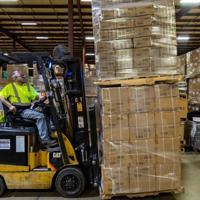Supply Chain Survival: How Global Trade Tensions Are Forcing Companies to Hoard Inventory

In the complex world of international trade, businesses traditionally respond to tariff impositions by rapidly stockpiling goods. However, the unpredictable nature of the Trump administration's trade policies has transformed this once-straightforward strategy into a high-stakes game of economic uncertainty.
Companies now find themselves navigating a volatile landscape where traditional stockpiling tactics no longer guarantee protection. The rapidly shifting trade positions and unexpected policy reversals have created an environment where strategic planning feels more like a complex chess match than a predictable business maneuver.
Executives are increasingly cautious, recognizing that knee-jerk stockpiling could potentially expose them to significant financial risks. The dynamic trade tensions demand a more nuanced and adaptive approach, forcing businesses to remain agile and prepared for sudden changes in the global economic terrain.
